Octet rule-definition-limitations of octet rule-hypovalent-hypervalent compounds
Octet rule-definition in covalent molecules .
Mostof the elements [ except H, Li , B etc ] have a tendency to attain eight electrons in their outer
most valence shell through loss or gain of electrons or by
sharing of electrons
at the time of chemical reaction, so that they can attain the next inert
configuration.
This
tendency of elements to maintain eight electrons in their own valence shell, is called octet rule.
For
example, carbon tetra chloride, methane ,
carbon dioxide, oxygen , nitrogen etc.
Limitations of octet rule
Although
octet rule explained the formation of many covalent and co-ordinate compounds,
yet it has some limitations like other rule.
There
are five limitation of octet rule are known to us ,which are discussed below.
·
Incomplete electron octet
There are
few stable compounds in which the central atom does not attain octet rule. That
is, the central atom contain less than eight electrons in their valence shell.
·
Expansion of electron octet.
There are few stable compounds in which the central atom does not attain octet rule. That is, the central atom contain higher than eight electrons in their valence shell.
For example, PCl5 , SF6 , IF7 etc
are example of expansion of electron octet.
·
Odd electron molecules.
There are
some molecules or ions which contain both two electron as well as three
electron covalent bond.
Such type of
molecules or ions does not follow octet rule. That is, the central atom have
incomplete valence shell.
For example,
NO, NO2 , ClO2 , O2–
etc are example of odd electron molecules.
·
Noble gas compounds
Noble gas elements are generally more stable elements. They have no tendency to react with other elements.
But ,under certain condition Xe and Kr form few compounds. These
compounds does not obey octet rule.
Because, in these compounds, the central atom contain more than
eight electrons in their outer valence shell.
·
Beside the above limitation, octet rule can not explain the shape
and relative stability of compounds.
·
What is hypovalent compounds?
There are
few stable compounds in which the central atom does not attain octet rule. That
is, the central atom contain less than eight electrons in their valence shell.
These type
of compounds with incomplete octet are known as electron deficient or
hypovalent compounds.
For example, BeCl2 , BF3 , BCl3
etc are example of hypovalent compounds.
·
What is hypervalent compounds?
There are
few stable compounds in which the central atom does not attain octet rule. That
is, the central atom contain higher than eight electrons in their valence
shell.
For example, PCl5 , SF6 , IF7 etc are example of hypervalent compounds.
·
What is odd electron molecules ?
There are
some molecules or ions which contain both two electron as well as three
electron covalent bond.
Such type of
molecules or ions does not follow octet rule. That is, the central atom of
these type of compounds have incomplete valence shell.
This type of
bond is called odd electron bond and the concern molecules are called odd
electron molecules.
For example,
NO, NO2 , ClO2 , O2–
etc are example of odd electron molecules.
Summary
· Octet rule-definition in covalent molecules .
· Limitations of octet rule
· What is hypovalent compounds ?
· What is hypervalent compounds ?
· What is odd electron compounds ?
· Limitations of octet rule
· What is hypovalent compounds ?
· What is hypervalent compounds ?
· What is odd electron compounds ?

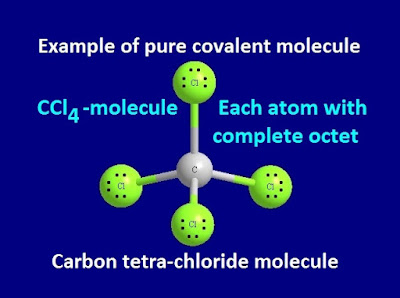



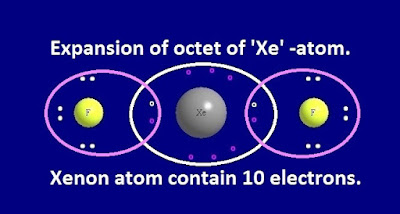
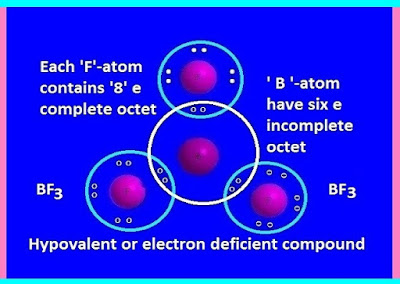
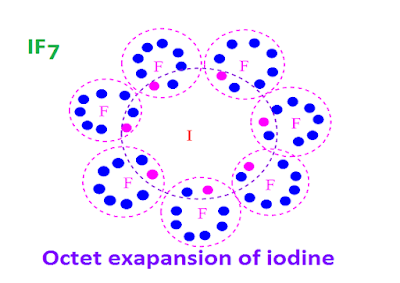
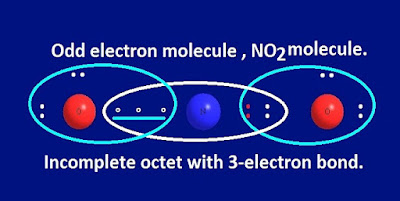






No comments